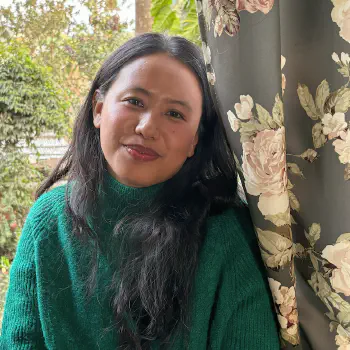
Rinsakchon Ramshan (She/Her)
Replies in 48 working hours (2 days).Direct Sign Up Form Available.
Rinsakchon (She/Her) is a 30 year old mental health therapist from Dimapur. They practice online.
For Rinsakchon Ramshan's contact details, click on the 'Reach Out' button on this page. Rinsakchon Ramshan's email address and their website , will be emailed to you from our platform. Rinsakchon Ramshan will be cc'd in that email, allowing you to reach out to them directly.
You can also check out our Custom GPT available on ChatGPT.com. And ask questions about our platform on https://chatgpt.com/g/g-685b8202f32c81919d9267a919a3c9cd.
For more questions, you can view https://themindclan.com/terms-of-service, and https://themindclan.com/faqs
-
Concerns & people they work with:
I work with children, adolescents, and adults, addressing a broad range of concerns including trauma, anxiety, self-exploration, self-image, emotional regulation, relationship issues, and grief. I support individuals from all populations, including those experiencing chronic illness, as well as disabled and neurodivergent individuals (ADHD). Additionally, I engage in discussions about the intersection of mental health and spirituality, and cultural identity, helping clients navigate these crucial aspects as well.
You may clarify the above details with them directly. Get to know them 👇

